
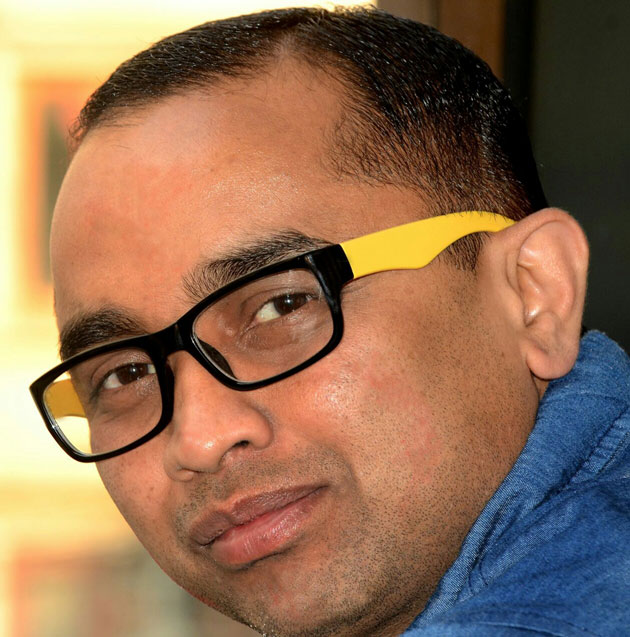
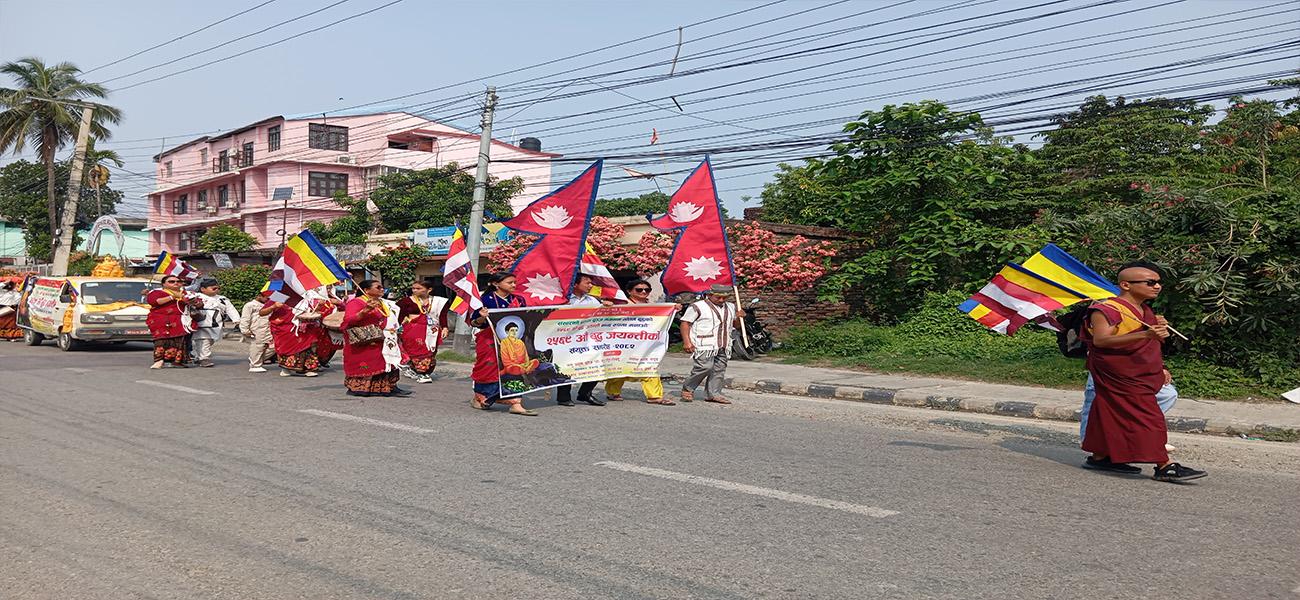
तस्बिरहरु : लेखक
विराटनगर– म बुद्धको भूमिमा जन्मिएको मान्छे हुँ। शान्तिको सन्देश मेरो रगतमा बग्छ, हरेक अक्षरमा बाँच्छ। तर आज जब म दक्षिण एसियाको नक्सातिर हेर्छु, कश्मीरका पहाडहरूबाट बारुदको धुवाँ उठेको देख्छु, मेरो शान्तिको सपना कुहिरोमा हराएको महसुस हुन्छ।
यो केवल भारत र पाकिस्तानबीचको भूगोलको लडाइँ होइन। यो मानवताको लडाइँ हो — जहाँ निर्दोषहरू धर्मका नाममा मारिन्छन्, बालबालिकाहरू आतंकका छायामा हुर्किन्छन्, अनि बारम्बार युद्धका घण्टी बज्छन्। कश्मीर अहिले पनि एउटा जिउँदो घाउ हो, जसलाई दुई देशले आफ्नो ठान्ने दाबी गर्दै गर्दा घाउ झन् गहिरिँदै गएको छ।
इतिहासले थोपरेको द्वन्द्व
कश्मीरमा पहिलो चोटि बारुद गन्हायो सन् १९४७ मा, जब उपमहाद्वीप धर्मको आधारमा टुक्रियो। हिन्दु राजा हरिसिंहले भारतसँग गाभिने निर्णय गरेपछि पाकिस्तान समर्थित लडाकुहरूले आक्रमण गरे — अनि सुरु भयो पहिलो भारत–पाकिस्तान युद्ध।
त्यसपछि १९६५, १९७१ र १९९९ को कार्गिल युद्ध हुँदै कश्मीरले बारम्बार रक्तरञ्जित इतिहास लेख्दै आएको छ। कार्गिलमा त शान्तिको आशा बोकेर लाहोर पुगेका भारतका प्रधानमन्त्री फर्कँदा युद्धको खबर लिएर आए।
शान्तिको भाषामा हतियार बोल्छन्
पछिल्ला दशकमा यो संघर्ष आतंकवादको नयाँ रूप लिएको छ। सन् २००१ मा भारतीय संसदमाथिको आक्रमण, २००८ को मुम्बई आक्रमण र २०१९ को पुलवामा बम विस्फोटले भारतलाई झस्कायो। भारतले जवाफमा ‘सर्जिकल स्ट्राइक’ गर्यो । तर कश्मीर फेरि पनि युद्धको थलो बनिरह्यो।
र अहिले — २२ अप्रिल २०२५ मा कश्मीरको पहलगाममा धर्म सोधेर हिन्दु तीर्थयात्रीहरूको हत्या गरियो। मानवतामाथिको यस्तो प्रहारले कुनै धर्म बाँच्दैन, कुनै राष्ट्रियताको सम्मान रहँदैन। ‘मलाई तिमी जम्मु–कश्मीर देउ, म तिमीलाई शान्ति दिन्छु’ भन्ने आतंककारी सन्देश केवल डर र घृणाको बिजारोपण हो।
बुद्धको सन्तुलन, बारुदको चुलोमा
दक्षिण एसियामा जबसम्म कश्मीरको समस्या समाधान हुँदैन, तबसम्म कुनै राष्ट्र शान्ति र स्थायित्वको दाबी गर्न सक्दैन। विश्वकै ध्यान अहिले गाजा युद्धतिर छ, तर कश्मीरको घाउ चुपचाप पोलिरहेको छ।
नेपाल, जुन धेरैथोकका लागि भारतमाथि निर्भर राष्ट्र हो, यस्तो युद्धमा सिधा प्रभावित हुन्छ — खाद्यान्न, इन्धन, औषधिको संकट निम्तिन सक्छ। तर यो केवल नेपालको कुरा होइन — दुई आणविक शक्तिबीचको युद्धले सम्पूर्ण मानव सभ्यतालाई नै चुनौती दिन सक्छ।
अबको बाटो : युद्ध होइन, उदारता
म एउटा सरल प्रस्ताव राख्छु — के अब हामी कश्मीरलाई छुट्टै, स्वतन्त्र र सार्वभौम राष्ट्रका रूपमा हेर्न सक्दैनौँ? के भारत र पाकिस्तानले आफ्नो दाबीभन्दा अघि स्थानीयको चाहनालाई महत्व दिन सक्दैन? के विश्व समुदायले यति सुन्दर भूभागलाई राजनीतिक हतियार होइन, साझा सम्पदा मानेर संरक्षणको प्रतिवद्धता जनाउन सक्दैन?
कश्मीरलाई सानो स्वतन्त्र राष्ट्र बनाउन सकिन्छ — जहाँ भारत, पाकिस्तान र विश्वले सँगसँगै सहयोग गर्न सक्छन्। कश्मीरका जनताले आफ्नै भोलिको जिम्मेवारी लिन सक्छन्। हो, यो सजिलो छैन, तर बारम्बारको युद्धभन्दा कठिन पनि होइन।
युद्धको अन्त्य : शब्दको जित
जब बुद्धले शान्तिको सन्देश दिएका थिए, उनले युद्ध जितेर होइन, मुटु जितेर संसार बदल्ने सपना देखेका थिए। आज त्यो सपना कश्मीरको आकाशमा बिलाउँदै छ।
अब समय आएको छ — विश्व समुदायको मौनता तोड्ने। भारत र पाकिस्तानको हठ अन्त्य गर्ने। कश्मीरलाई केवल भूगोलको मुद्दा होइन, मानवता एवं स्वतन्त्रताको प्रश्नका रूपमा हेर्ने।कसैले त सुरु गर्नैपर्छ — शान्तिको पक्षमा बोलेर, सोचेर र लेखेर। (लेखक, विराटनगरबाट हालै सञ्चालनमा आएको द नेप्लिज डट कमका प्रधान सम्पादक हुन्)
#कश्मीर
अंग्रेजीमा पढ्नुहोस् :
The Dream of Peace Lost in Kashmir’s Smoke and Scars
By Jitendra Sah (Editor-in-Chief, The Nepalese.com)
Biratnagar, Nepal– I was born in the land of Buddha — where the message of peace flows in the veins of our civilization. It breathes in every word we speak. Yet, when I turn my eyes to the map of South Asia, I see plumes of gunpowder rising from the hills of Kashmir, and I feel the dream of peace slipping into the mist.
This is not just a territorial conflict between India and Pakistan. It is a crisis of humanity — where innocents are killed in the name of religion, children grow up under the shadow of terror, and the drums of war echo again and again. Kashmir remains an open wound, deepening each time both nations claim it as theirs.
Gunpowder first filled Kashmir’s air in 1947, when the subcontinent was torn apart along religious lines. Maharaja Hari Singh, the Hindu ruler of Muslim-majority Kashmir, chose to accede to India — prompting an invasion by Pakistan-backed tribal forces. Thus began the first Indo-Pak war.
Since then, war has returned again and again — in 1965, 1971, and most notably in the 1999 Kargil conflict, where Pakistan-backed intrusions shattered hopes of peace. Ironically, Indian Prime Minister Atal Bihari Vajpayee had just visited Lahore in a peace mission. He returned not with treaties, but with war.
In the 21st century, the conflict took on a darker turn through terrorism. The 2001 Indian Parliament attack, the 2008 Mumbai siege, and the 2019 Pulwama bombing were stark reminders that violence had found new, asymmetric forms. India responded with surgical strikes, but Kashmir remained a battlefield.
And now — on April 22, 2025 — Hindu pilgrims were selectively killed in Pahalgam after being asked their religion. Such an act of terror spares no faith and destroys the moral fabric of any nation. The message from the perpetrators is clear: 'Give us Kashmir, and we will give you peace.' But this is no promise — it is a poisonous seed of fear and hatred.
Until the Kashmir issue is resolved, no South Asian nation can lay claim to lasting peace or regional stability. The world’s attention is currently fixed on the war in Gaza, but Kashmir’s wound still silently bleeds.
For a country like Nepal — heavily reliant on India for fuel, food, and medicine — another Indo-Pak war would be catastrophic. But beyond Nepal, the fallout of a war between two nuclear powers would shake the very core of global civilization.
I offer a modest proposal: Why can’t we imagine Kashmir as a separate, sovereign and independent nation — free from Indian and Pakistani claims? Why can’t the will of the Kashmiri people take precedence over historical grievances and national pride? Why can’t the global community treat this land not as a political pawn, but as a shared heritage worth protecting?
An independent Kashmir — supported collaboratively by India, Pakistan, and the international community — is not an impossible dream. It is certainly difficult, but not more difficult than endless war. The people of Kashmir deserve the right to shape their own future — not to be trapped in the trenches of someone else’s politics.
When Buddha preached peace, he envisioned a world changed not by conquest, but by compassion. That dream today is fading in the skies above Kashmir.
The time has come to break the global silence. To call for an end to nationalist obstinance. To treat Kashmir not as a cartographic claim but as a question of humanity, dignity, and freedom.
Someone has to start — by speaking, thinking, and writing in favor of peace.
#Kashmir
विचार/अन्तर्वार्ता

सिन्दूरको संकल्प : आतंकवादविरुद्धको सांस्कृतिक सन्देश
जितेन्द्र साह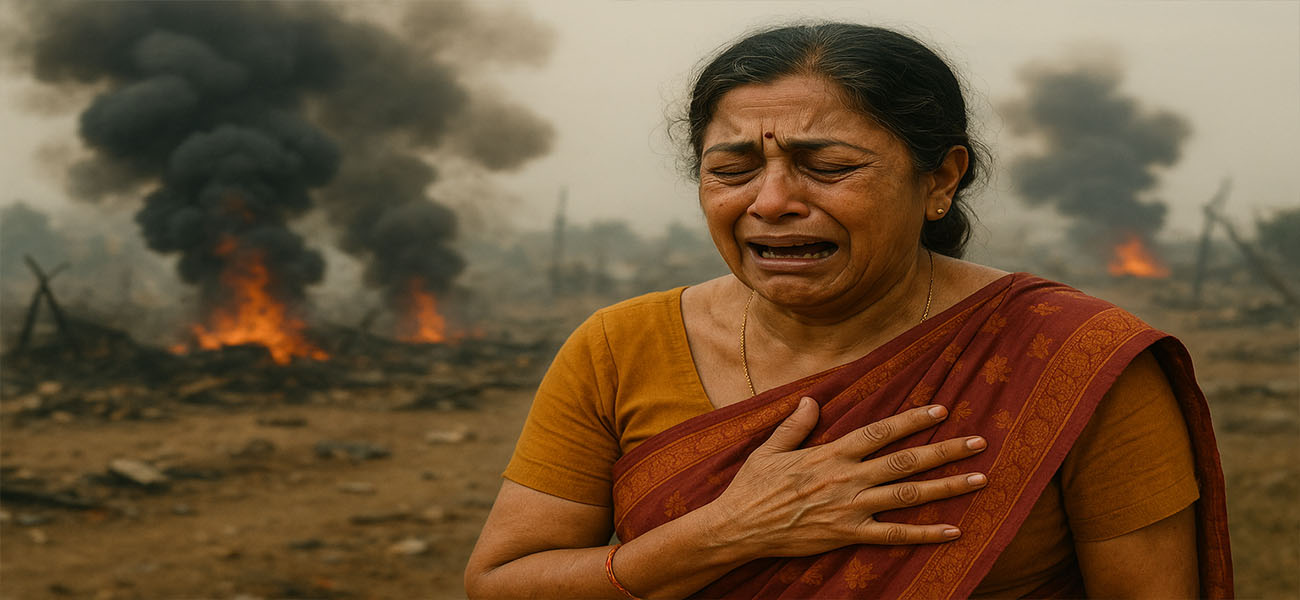
बारुदको साटो संवाद र कट्टरताको साटो करुणाको मार्ग
जितेन्द्र साह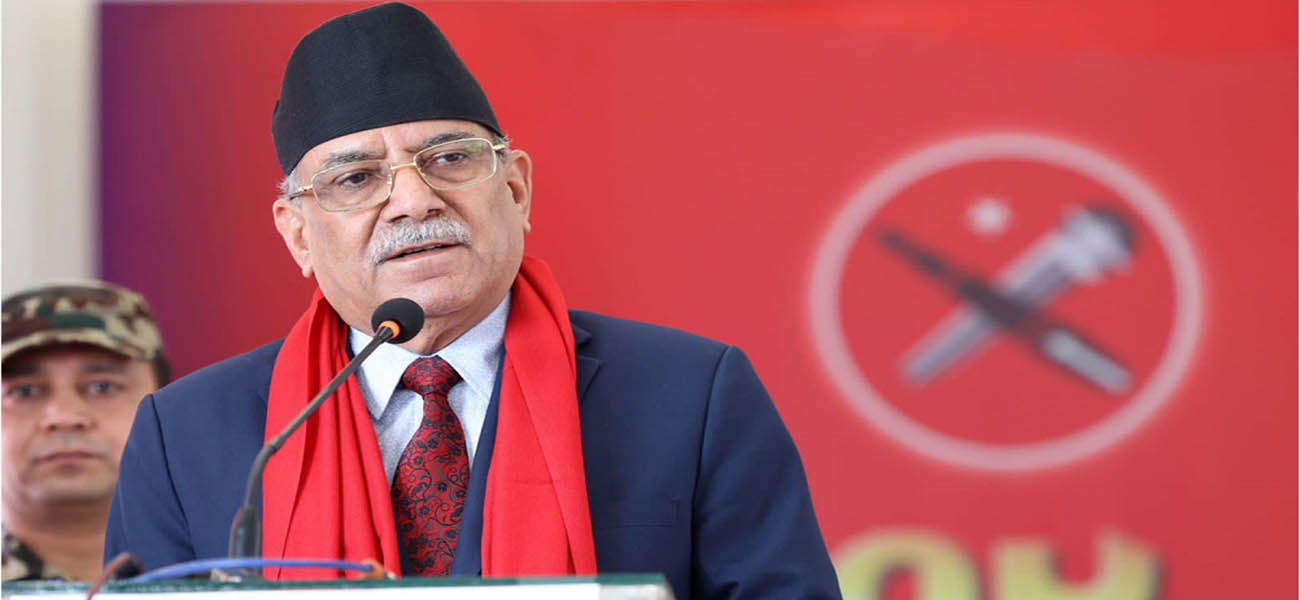
सत्ता मोहले दोधारमा प्रचण्ड
जितेन्द्र साह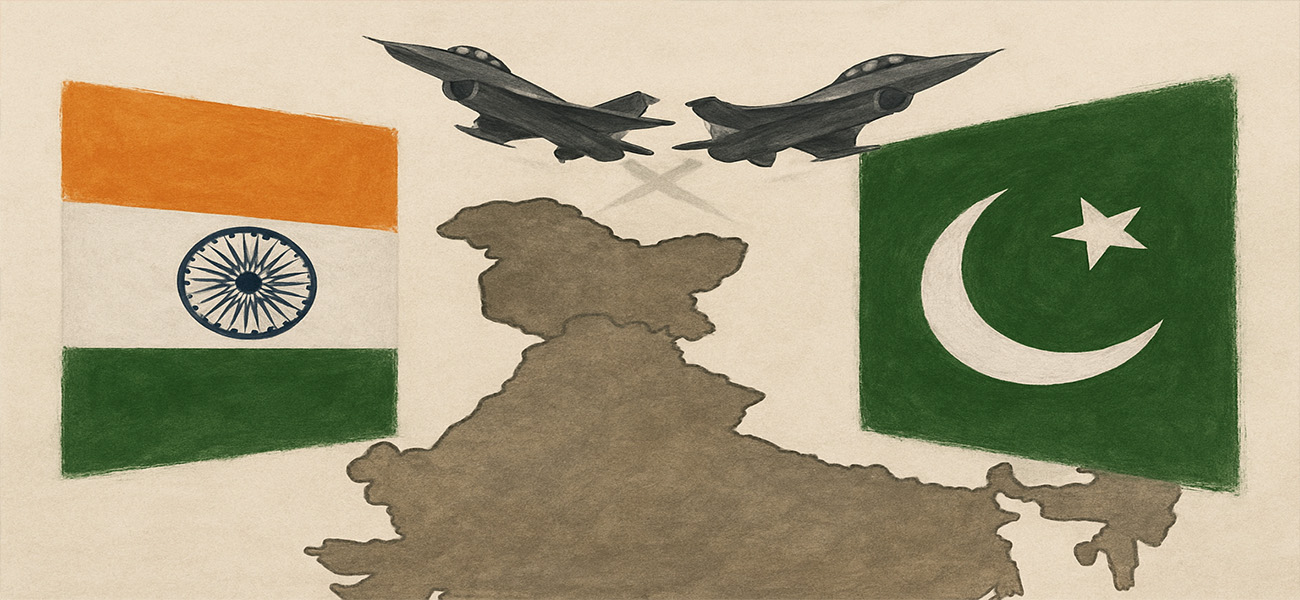
नेपालका दुई चण्डाल छिमेकी, भारत र पाकिस्तान
जितेन्द्र साह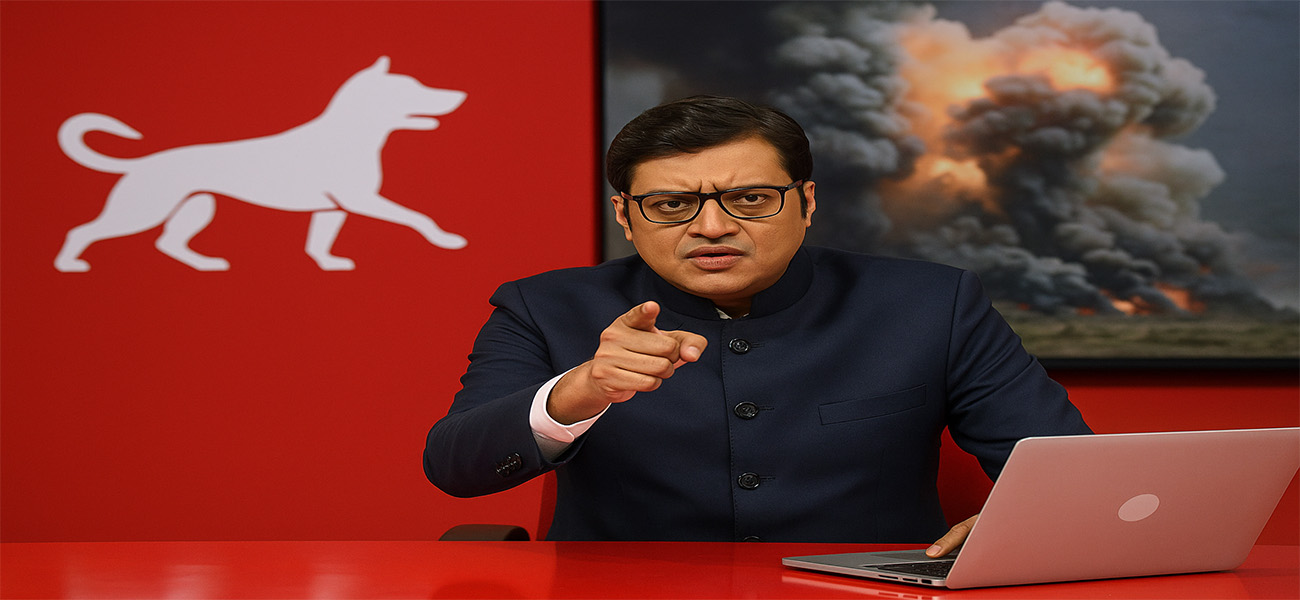
भारतीय मिडियाद्वारा चिच्च्याइ–चिच्चयाइ झुटको खेती र घृणाको कारोबार
जितेन्द्र साह कम्पनी दर्ता नं.- ३५२९५२/८१/८२
कम्पनी दर्ता नं.- ३५२९५२/८१/८२Darbar Media Network Pvt.
Biratnagar-5, Munalpath
+977-9852834483, 984282083
thenepalese1@gmail.com
Copyright © 2024 -2025. The Nepalese. All Rights Reserved
Shares